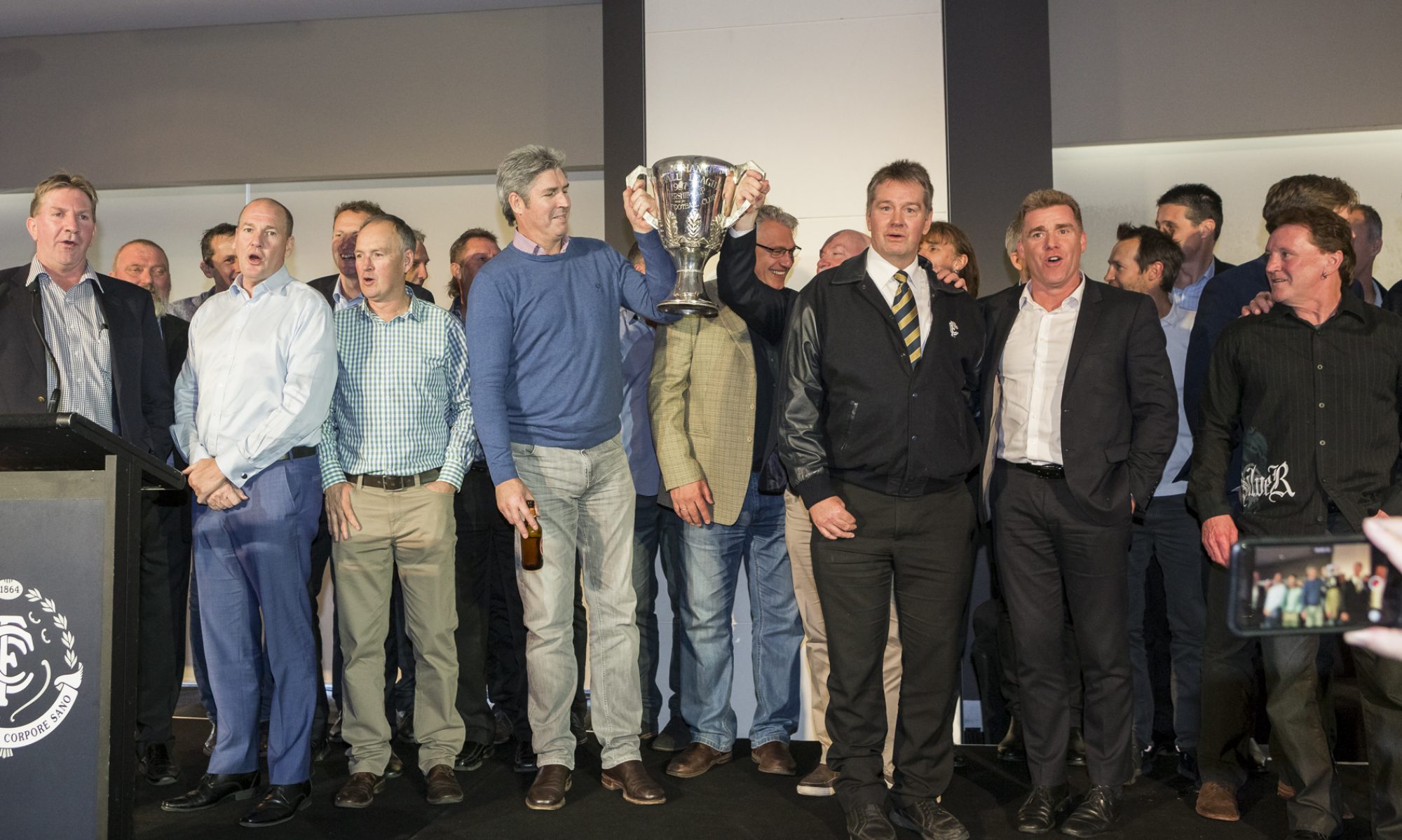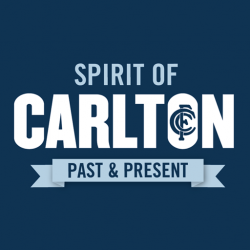By Tony De Bolfo
Sorrell represented the old dark Navy Blues in 23 senior matches between the opening round of the premiership year of 1947 and the ’49 second semi-final, his last on-field appearance. He then turned out for Fitzroy for one senior game in 1950.
 The second of three sons of Ralph & Marie Sorrell, Alan was born in Ivanhoe in 1923, and spent his formative years in Gardenvale. Following his marriage to Laurel in 1941, the newlyweds relocated to East Brighton, and it was there in February that they celebrated their 60th wedding anniversary.
The second of three sons of Ralph & Marie Sorrell, Alan was born in Ivanhoe in 1923, and spent his formative years in Gardenvale. Following his marriage to Laurel in 1941, the newlyweds relocated to East Brighton, and it was there in February that they celebrated their 60th wedding anniversary.
A dux of Melbourne University’s commerce faculty, Sorrell pursued a career as a public accountant. But with the outbreak of World War II he answered the King and Country’s call, ably representing the Royal Australian Medical Corps in its militia field ambulance unit.
Sorrell served in that unit for five years, and while he emerged without any physical scars, there was the mental anguish. As his son Ashley explained: “He had to help wounded soldiers and pick up dead bodies . . . he didn’t talk about it much, and although he used to catch up with his old cobbers at yearly reunions, he never went to the marches”.
Ashley termed his father’s playing career “quite unique”.
“Dad came back from the war at the age of 23 in August of 1946, and he’d never played football before. He played three or four games for Melbourne High School Old Boys to get a bit of fitness and by ’47 was playing in the first round with the Carlton seniors. Not a bad achievement,” Ashley said.
“Dad wasn’t a superstar but he was very tall for that era (6’2″) – in fact he always thought of himself as a journeyman and he never boasted about his career. But he loved his club.
“He was 90 per cent sight impaired at the end because of glaucoma, but in the old days we used to go to Carlton’s bigger games together. He always followed the Blues and knew all the current players because he was a terrific newspaper reader . . . and he was at the Spirit of Carlton’s last AGM.”
 A contemporary of Sorrell’s the dual Carlton premiership centre half-forward Ken Hands, said that while he had only crossed paths with Sorrell twice in the years since, “I can remember him quite clearly”.
A contemporary of Sorrell’s the dual Carlton premiership centre half-forward Ken Hands, said that while he had only crossed paths with Sorrell twice in the years since, “I can remember him quite clearly”.
“Alan played as a follower, but he didn’t play for long. He was a quiet sort of player, rather gentle, and while he wasn’t a quick mover he moved smoothly,” Hands said.
“He was a very nice fellow.”
Sorrell is survived by his daughters Sharon and André, and son Ashley.

